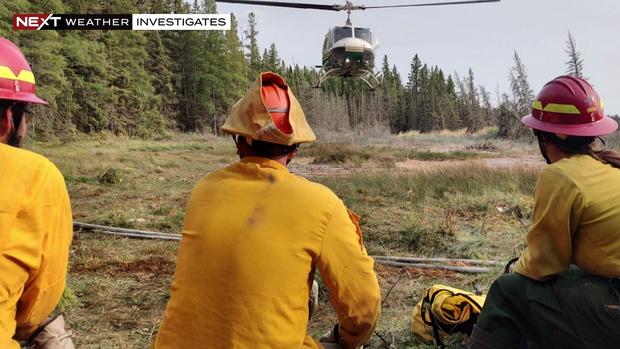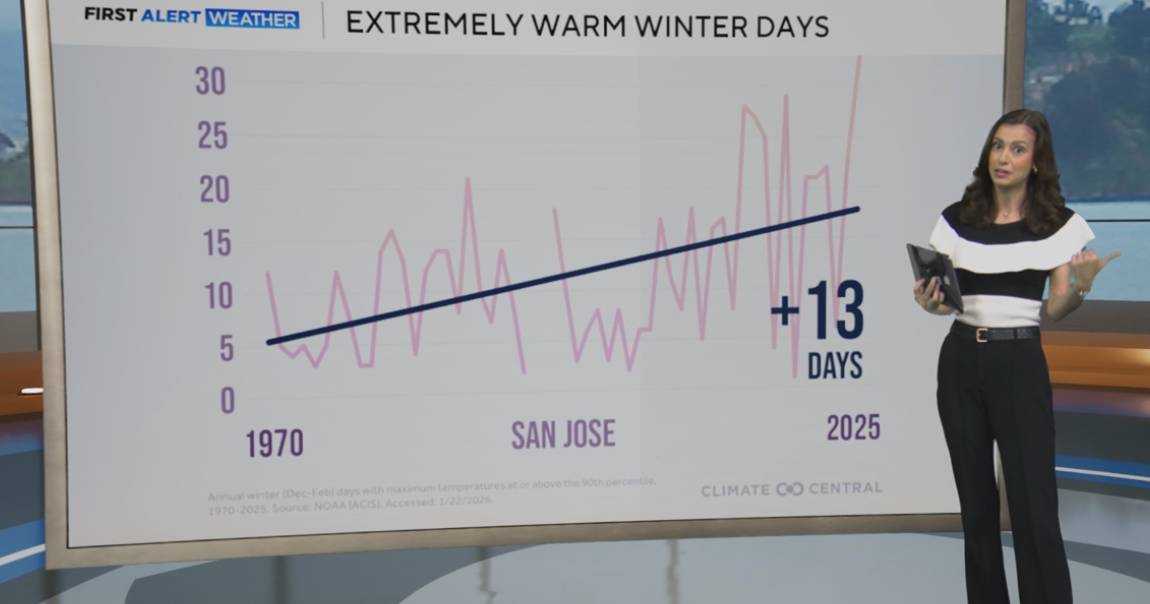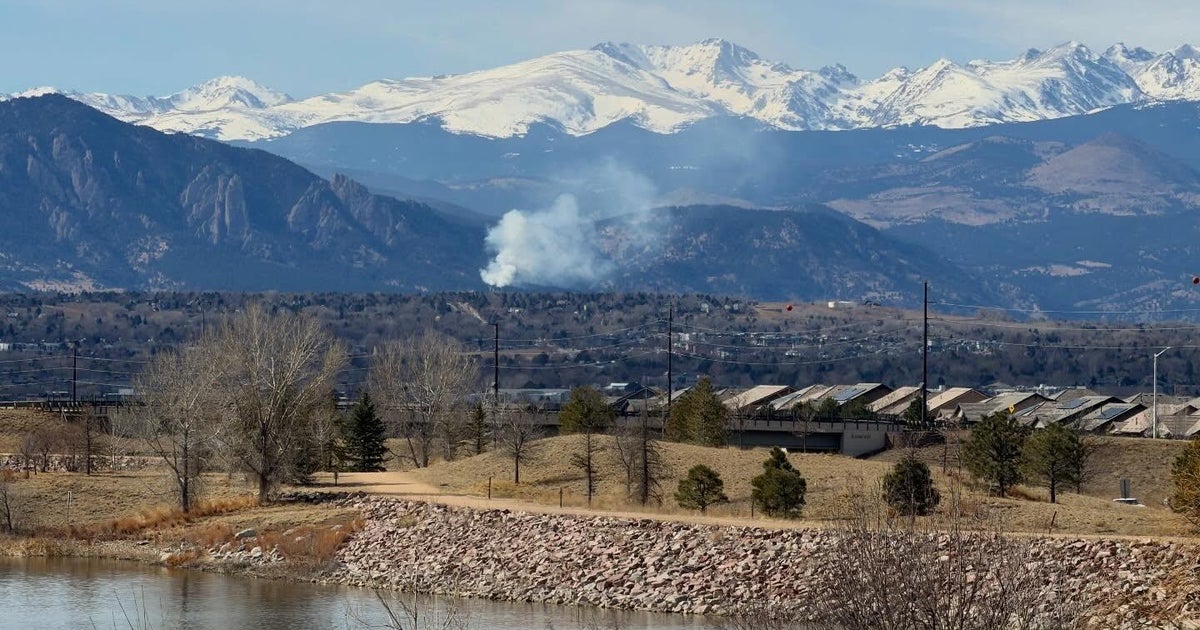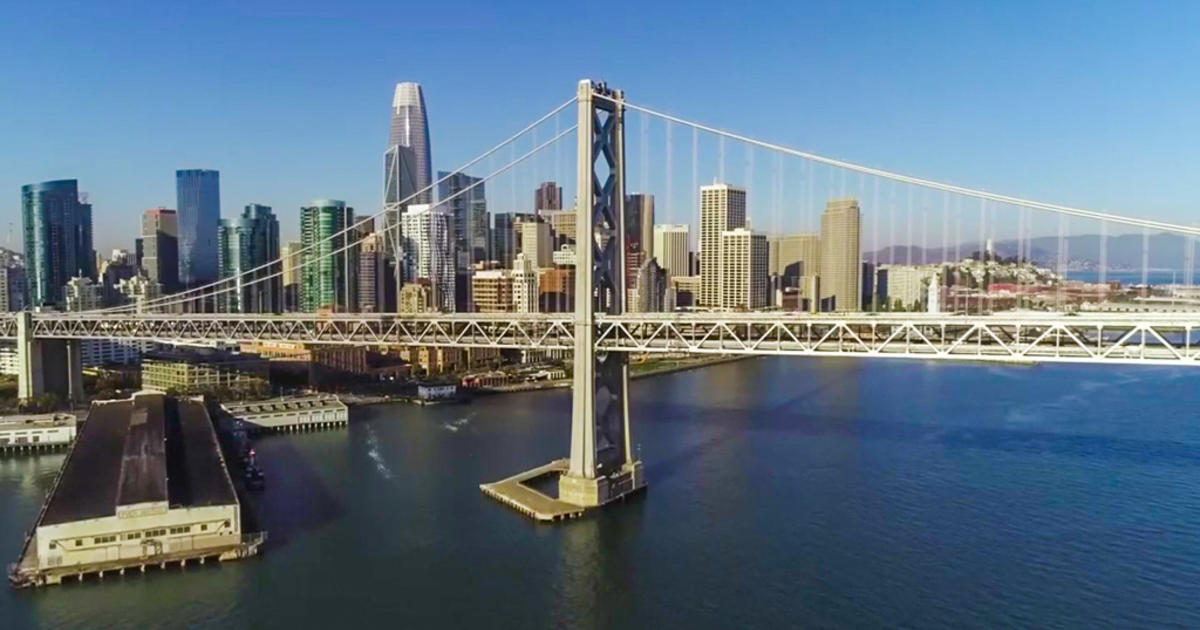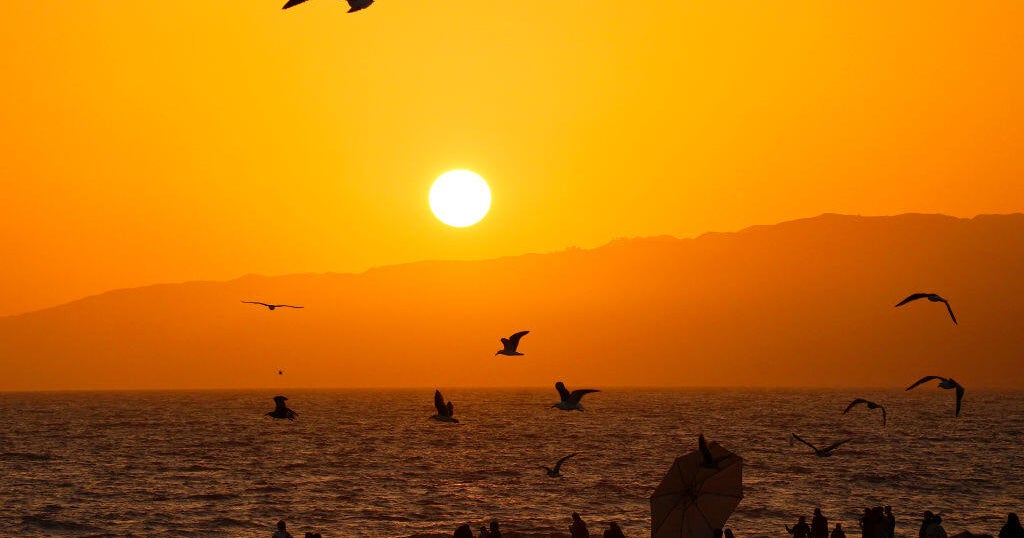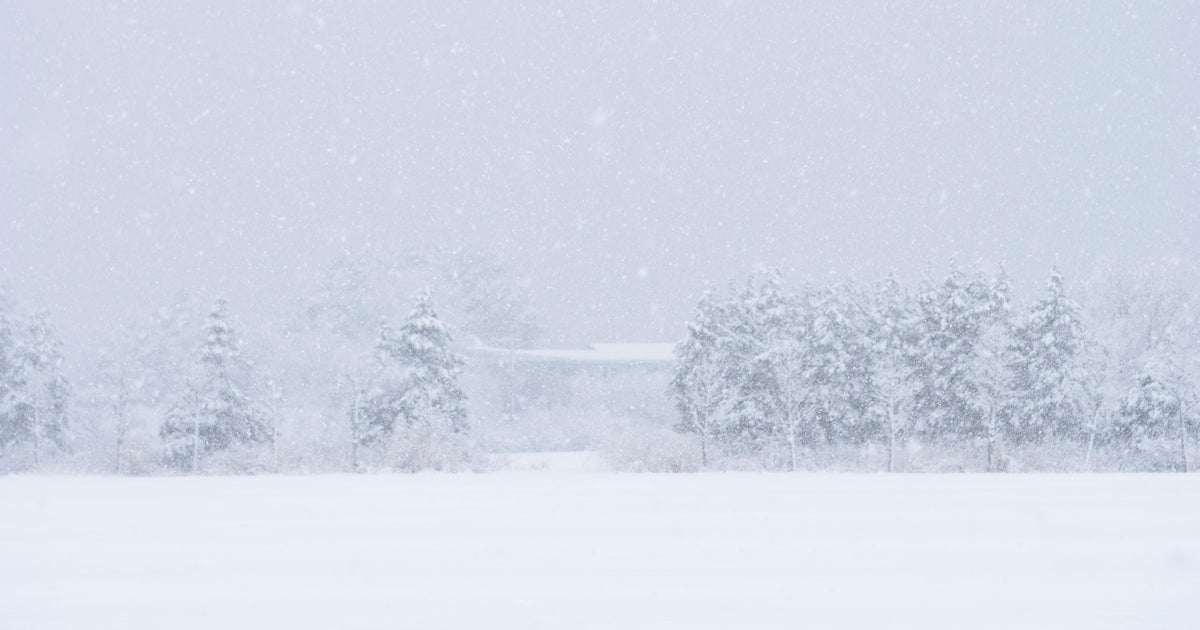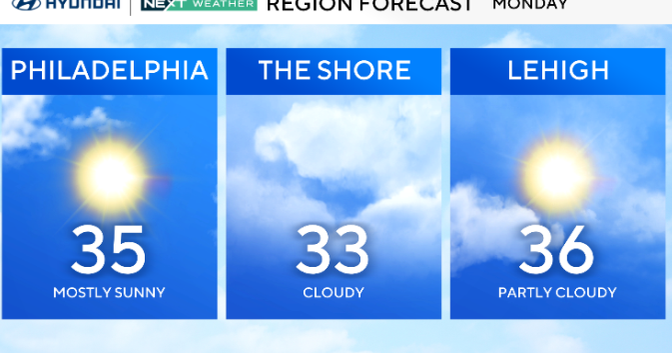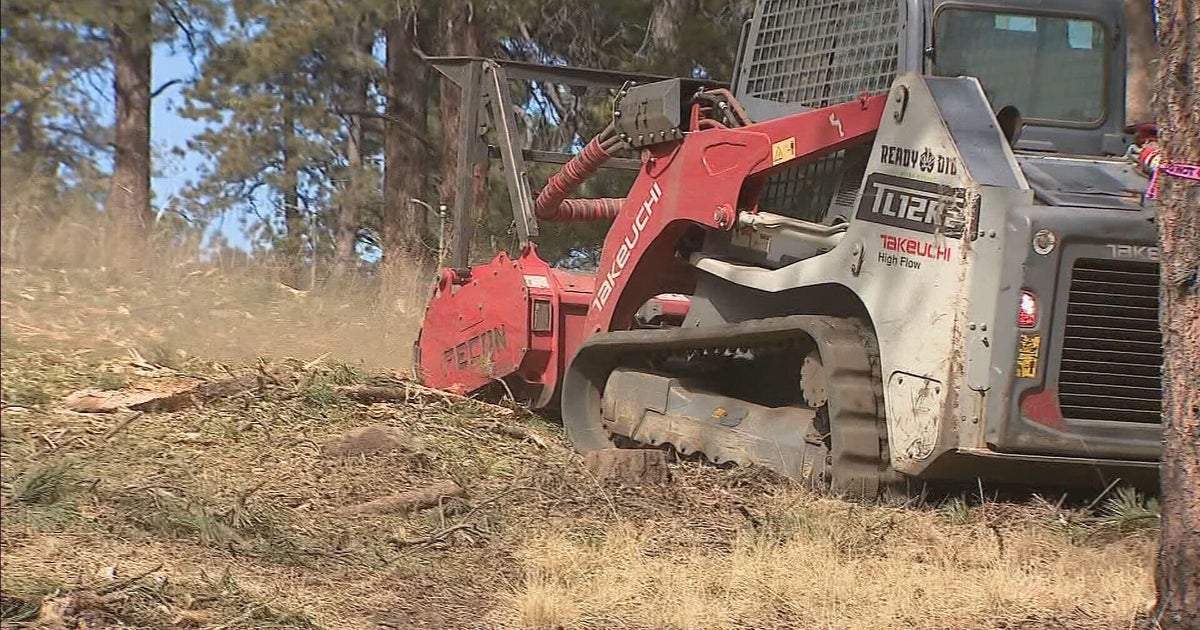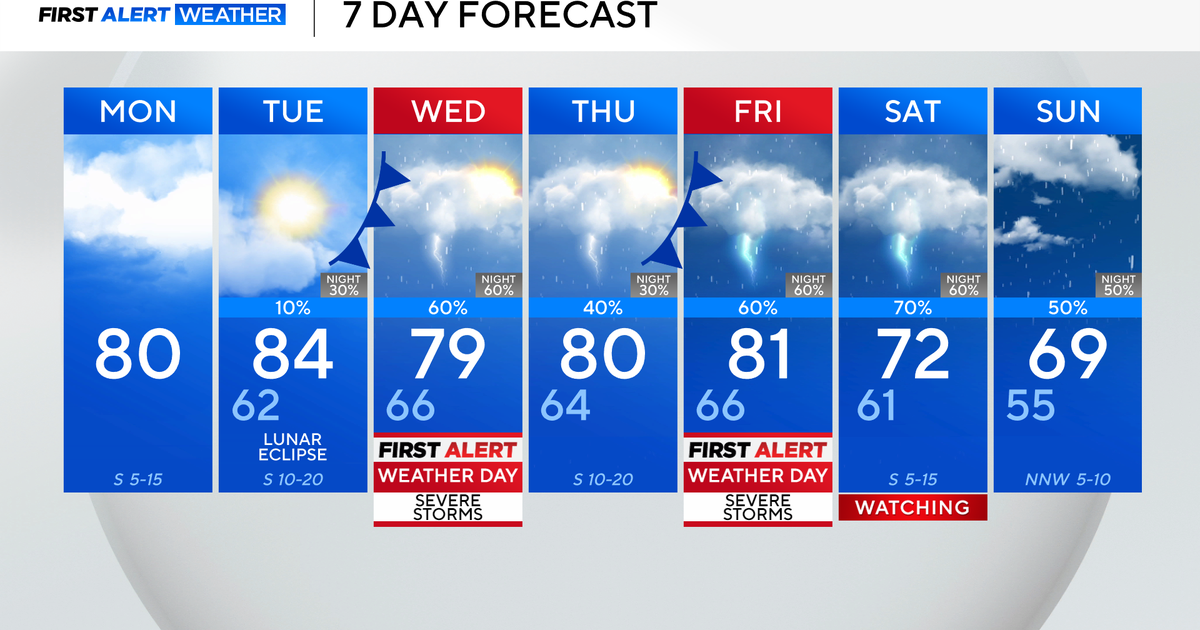Summer of Smoke: Climate change front and center as Canadian wildfires keep on burning
SAINT PAUL -- Mess with the delicate balance of Mother Nature and there are dangerous consequences.
That sentiment has been ever apparent in the Canadian province of Alberta - home of the Canadian Rockies - which recorded several days of 80-90 degree temperatures in April.
"This year, in April, what we were looking at was day after day of the kind of temperatures we would see in an August heat wave," Christie Tucker, Alberta Wildlife Officer, told WCCO News. "We had dead and dry grass and trees, and we didn't have green leaves yet. We were dry across the province in April and much hotter than usual and those winds are what can make the difference when the fire starts and puts itself out and one that blows up to become an enormous wildfire."
Indeed, there are several enormous wildfires currently raging in Alberta, and several more burning across the nation; more than 5,000 wildfires have been reported since May, tearing through at least 30 million acres.
SUMMER OF SMOKE: WCCO visits Canada's hub of operations as nation battles 5,000 wildfires
In Alberta, moreover, 38,000 people have been evacuated.
"Our wildfire season isn't over," Tucker lamented. "We have a few months to go, and we have to be prepared to sustain the kind of activity since we've had since April, which is something that can drain a lot of people."
In the Northwest Territories, Wildfire Officer Mike Westwick echoed the concern that a changing climate is a major factor to this year's crisis.
"This is a reality we're all going to have to live with and it's certainly one that our communities are living with very strongly," Westwick explained to WCCO News. "We're a big group of guerilla warriors here against these fires, and we're working really hard every day to keep these folks safe."
As firefighters battle on the front lines, climate scientists are hoping that everyday residents feeling the heat from this summer of smoke can also mobilize to mitigate the risks of a warming world.
SUMMER OF SMOKE: Canadian meteorologists adjust to forecasting smoke clouds as wildfires rage
"Our forests are at risk, our lakes are at risk, our health and wellbeing is at risk," Heidi Roop, a climate scientist at the University of Minnesota warned. "We've seen very clearly, and I think it's a wakeup call with all the wildfire smoke coming from Canada that climate change needs no passport."
SUMMER OF SMOKE: Protecting yourself and loved ones from wildfire pollution
Roop offered several examples for people to make meaningful changes, and they initiatives that don't break the bank.
"By lengthening that delivery window, opting slow rather than overnight or same day shipping, can reduce the emissions of a single package by up to 180%," she said. "More packages, one truck, fewer stops. It enables them to be more efficient with the supply chain."
If people want change in government, Roop said it's critical to focus on the local level and not Washington, D.C.
"Communities with stronger social ties are better able to respond to and recover from natural disaster and climate events like extreme heat."

